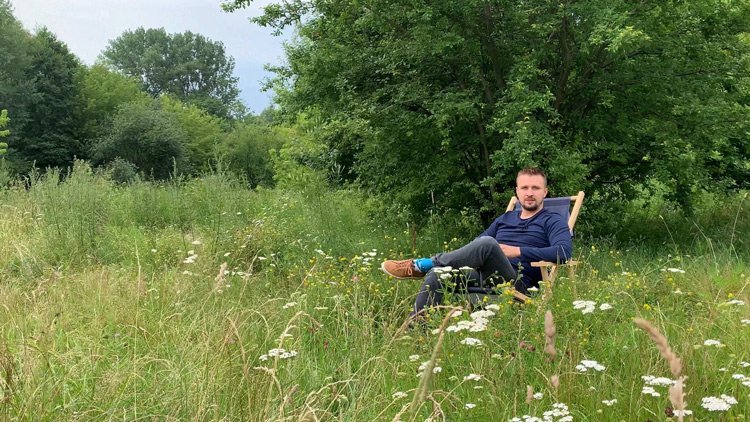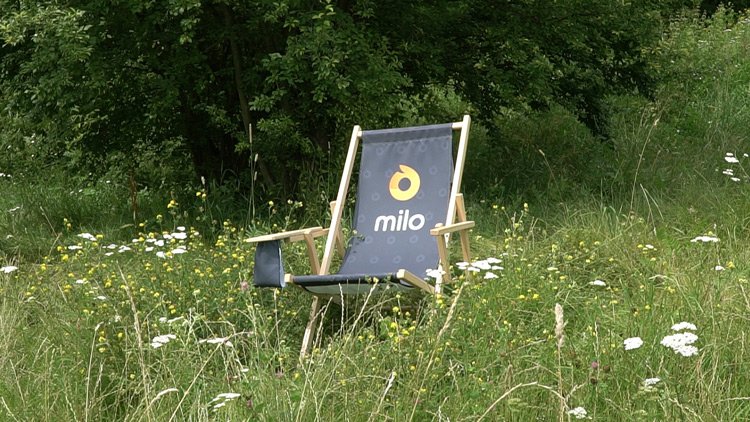What's the origin of the name Milo?
Milo from the Greek means an apple. We wanted to use Apple, but it was already taken, of course. The translations into other languages were not so convincing to me, and Milo was short and professional.
What were the company's beginnings like?
At first, I worked alone as a developer. Then, Michał Iskierko joined the company. He was the first person employed in Milo. We were both developing a project then. Later, we hired some interns. They were actually one of the first people in the sector in Lublin. A bow to Michał - Michał, thanks a lot for all those years!
Where did you work before you started Milo?
I started as a C++ and Qt developer in a small company in Lublin, together with Michał Iskierko. Then, it was an online freelancing for some companies from the US. A greater step was moving out of Lublin and working for Samsung. Apart from that, meanwhile, I was doing an additional project with Michał. After a year in Samsung, I started Milo, which was my private entrepreneurship, which was transformed into a company.
The funniest situation with a client?
The situations that I associate with clients are rather strange, unprofessional than funny. Once I called one of the client's attention to an unpaid invoice, and he answered that I was like a chihuahua dog barking all the time, but doing nothing. That was one of the clients of an aggressive type. There were also some who, at first, found Milo the worst company in the world, but later thanked for the opportunity to meet us. Those are of the emotionally stunted type. I also remember a client who threatened me personally that he would come to Lublin and destroy the whole company. There were various situations, very negative, and even scary. How can you react to a client's words that they are going to fine you two or five million euros when you have only two people on board when setting up a company? Especially when the client was from the finance sector. Luckily, it occurred that they were talking a lot but doing very little.

Why the IT sector?
That's a good question! Living in the countryside, working with my parents, I didn't have any good chances to work in IT. But everything changed when I got my first computer, and I got more interested in games. Then, as it usually happens, I started wondering how such games are created. As a result, it occurred that I am not interested in that at all (laugh). But I got fascinated with IT as a sector and technology. Hence the choice of the Lublin University of Technology and studies in this field, and then work. Although I no longer code, I'm personally very interested in broadly understood technology in various sectors. That's why I try to enthuse everybody in the company with those interests.
You started as a developer, now you manage the company. Don't you miss that?
Now not. But I worked with Michał only at first. Then I employed a couple of people, and there were around ten developers, and I realized that there must be someone who would supervise the whole work. I had to choose - I could keep working as a developer and stop the company growth, or I could take up sales or management. That was the moment when it was the most difficult to make a decision. For a year or two, I kept wondering what would happen if I came back to development. Quite soon, though, I realized that, in the company, there are many strong people, who - I can honestly say - are much better at programming than me when I was doing that. I just assumed that everyone must fulfill themselves, where they have the greatest value. I focused on managing the company. Now, with a tear in my eye, I recall and say that "I was a developer." Those who have been in the company for quite some time laugh that it was a long time ago, but the fondness of programming is still there with me. I'm still able to have a look at the code and assess its quality. At the same time, I can estimate if the task will take me 10 or 100 hours.
Which do you find harder: raising your kids or managing the company?
The hardest is the combination. Both have pros and cons. But when I'm trying to focus on my work, having kids at home at the same time, especially now in the pandemic times, it's really difficult to be fully involved in both. I'm happy we managed to combine one with the other. My family gives me a lot of joy and is of great value. And I can fulfill myself professionally in the company as well.
Your wife is the CFO of Milo. How to reconcile private and professional life?
It is, of course, about Agata, with whom we run the company. Every time somebody asks me this question, I give a one-sentence answer - all problems from home come to work, and all problems from work come home. It works like that: when it comes to an argument at work, and you are not a family, you just go home, and you're not bothered. However, when we don't solve the problem at work or at home, neither of us can find peace. A huge advantage is the fact that we've known each other for 16 years. Neither of us has any doubts about our engagement in all issues. And although we have different opinions, pretty often, we can work out a compromise.
Who is your greatest role model?
It's a tough question, but in my life, there is a group of people with whom I talked, and I remember those conversations or some situations that were important to me. The person who makes me do the things I work on better is Agata, my wife. There were numerous situations when I didn't agree with her opinion, and then it turned out that she was right. Even now - believe it or not - I have a sticky note in a visible place with the words Listen to Agata. It frequently occurs that her contribution is super-important and that we could have avoided many problems if I had shown more interest in her opinion. Currently, she is my greatest role model, and she completes a lot of things, which I'm not able to do.

What do you value your company for the most?
Personally, the company allows me to realize all the things I wanted to do. I was a developer, then I took up sales, that is the so-called business development, now I am training in marketing with our team. I wanted Milo to be such a company that would complement everything that I missed when I had the opportunity to work in a corporation or in small startups. Neither a corporation is bad, nor startups are good. This is a bit of a generalization, but I think it is worth having a company where people want to work. If someone really spends 8 hours a day, or 168 hours a month, it's nice to have people and an atmosphere that is nice to come to. It was my goal, apart from quality, to have a place where people just want to work.
Do you plan to make Milo a family business?
At the moment, we do not think about it yet, because the kids are 6 and 3 years old, respectively. But I must admit that Agata and I sometimes talk about it, although it is terribly difficult to plan. Now, we assume that our kids, to work with us at all, will have to meet - just like everyone who comes to the company - some requirements. They will need to show some quality and appropriate commitment. Neither of them will get anything for free. Otherwise, they wouldn't be able to appreciate it.
Where would you see yourself in 5 years?
Once, I would say five years is a lot. Now, in hindsight, it will pass quite quickly. I hope that my role in Milo will still be active because I really like - which I often tell you - working inside the company. Sometimes it is much more enjoyable to work with the company itself than with clients because we know each other directly and we have made a good team. I hope that in five years we will be a company two or three times larger, which is not the scale but the result of our actions. I think we have so much potential. Since our quality is increasing, customers will ask for more work, and the range of our brand will grow. Personally, I hope to have what I don't have now - more independent children, the possibility to sleep a little more and work less, supervise more and watch everyone who is at the forefront of teams grow and also help you with your work.
If you didn't work as a programmer, where would you be?
I have to go back to high school times because I wasn't strong at math, which is usually a determinant when someone wants to go to programming studies. I was also not good at graphics or drawing because I draw terrible. In fact, if someone asked me what shouldn't you do in your life? - I would answer - draw. I was thinking about biology, biotechnology, or generally being a doctor. I was such a typical nerd. I had an A in Biology, and I assumed I could learn all the stuff about the body. I was also fascinated by operations - cutting a person seems interesting (laugh). All in all, if it wasn't the IT industry, I would like to take up surgery - if I was good at it, of course.
















